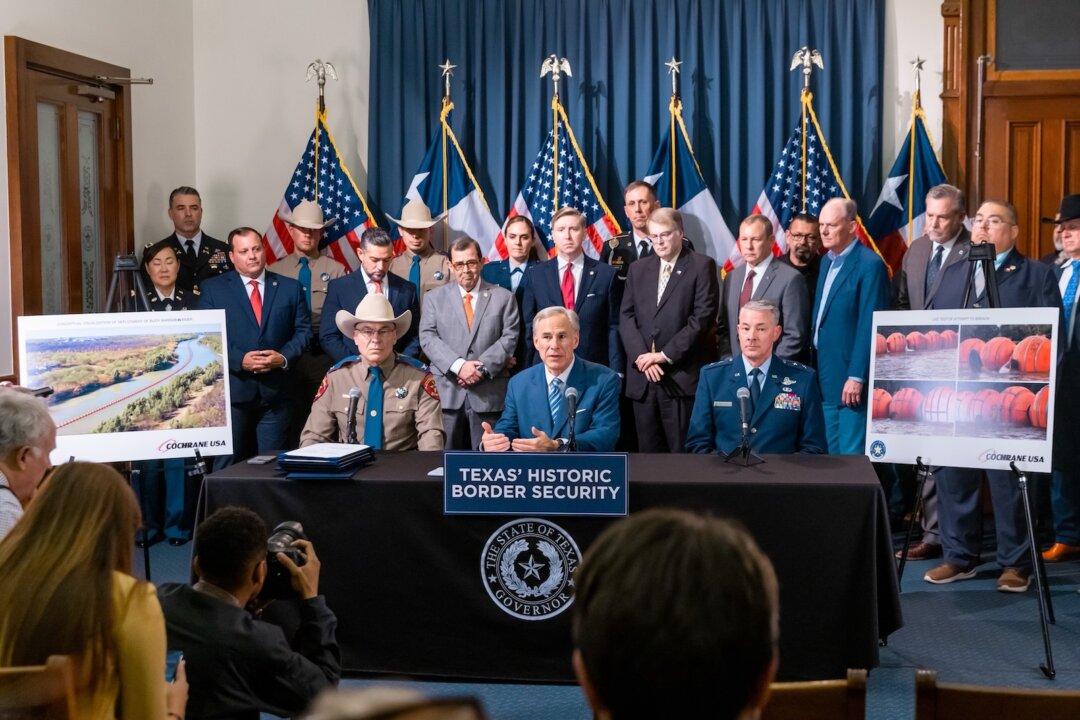Texas will soon deploy a long chain of large buoys in the middle of the Rio Grande to deter illegal immigrants from crossing the southern border.
Gov. Greg Abbott said the first 1,000-foot floating barrier would be placed in the river at one of the crossing hot spots near Eagle Pass in Maverick County. Eagle Pass is about 145 miles southwest of San Antonio.





